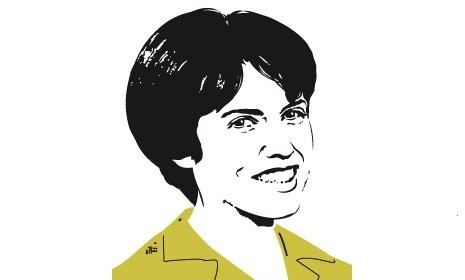Why Southwest Airlines hates Kevin Smith
Airlines have contempt for overweight people. But that's just the beginning of a long, long list.

A free daily email with the biggest news stories of the day – and the best features from TheWeek.com
You are now subscribed
Your newsletter sign-up was successful
Southwest Airlines–bashing indie film director Kevin Smith has it all wrong.
The airlines don't hate fat people, Kevin. The airlines hate all people.
Last week, Smith infamously tweeted that he was booted off a Southwest flight because he was too big for a seat into which he claims to have fit just fine. As a small person, I have never had that particular problem. But like any frequent flier, I am deeply familiar with the root causes of Smith's outrage: hostile policies that are vaguely stated, arbitrarily administered, and, when disputed, almost always resolved so as to penalize the passenger.
The Week
Escape your echo chamber. Get the facts behind the news, plus analysis from multiple perspectives.

Sign up for The Week's Free Newsletters
From our morning news briefing to a weekly Good News Newsletter, get the best of The Week delivered directly to your inbox.
From our morning news briefing to a weekly Good News Newsletter, get the best of The Week delivered directly to your inbox.
The airlines’ hate for humankind appears boundless. For starters, as I have just been reminded, they hate people who have luggage.
Last Saturday, I flew Continental from Shannon to Newark. Upon landing, I learned that my husband had received a phone call back home alerting him that my suitcase was still in Shannon and would arrive later. As soon as I reached my parents' home, where I was visiting, I called the lost baggage center, which fortunately had the claim in its system. I started to give the address to which the bag should be delivered.
“But ma'am,” said a voice of toll-free authority, “you didn't make a claim in the airport.”
“Of course I didn't make a claim in the airport,” I countered, not mentioning the long lines, unmanned desks, and follow-up nightmares that I’ve endured when making claims in the past. “The airline already knew about it.”
A free daily email with the biggest news stories of the day – and the best features from TheWeek.com
“You have to make a claim in the airport,” she repeated, with that gently threatening, kindergarten-teacher/Soviet-enforcer inflection without which no one can obtain call-center dominance, “or else you have to come back and get it yourself.”
“I have to report missing luggage to you, even though you have already reported the missing luggage to me?”
“Ma'am,” she sighed to settle the matter, “ I'm in Texas.”
Now, to clarify, it turned out that Continental hadn't actually called my husband. Continental had merely dumped the bag in a basement at Shannon, and some kind soul from Aer Lingus had found it and followed up. But never mind my little run-in. What matters is the policy, which is probably only medium-wretched by industry standards. The policy is, we lose your pajamas and shoes and business attire—and instead of moving heaven and earth to avoid inconveniencing you even further, we move heaven and earth to make this your problem.
The airlines hate people who have children.
Back when mine were infants, I always made a point to call ahead to reserve the bulkhead and its bassinet, and to call again to confirm. Almost every time I was assured that we had it; almost every time I arrived at the airport to find no record of this assurance. And almost every time I boarded the plane to find the bulkhead occupied not by some other family with small children or by a person with a disability but by able-bodied adults who were inevitably inconvenienced by my request to switch seats.
At least these airlines didn't try to box the baby. I remember one U.S. Airways flight on which—hooray!—my little bundle and I had secured the bulkhead. Shortly after takeoff, when the plane had leveled off and the bassinets are usually set up, the attendant tried to hand me a cardboard box.
“You want me to put my baby in that?” I asked.
She nodded and pointed to the side of the box with the finality of a prosecutor pointing at a smoking gun. Sure enough, there on the side was a cartoon drawing of a stork.
The airlines hate people who don't have computer access or the ability to reserve, confirm, and check themselves in without human assistance.
They also hate people who are delighted to push all their own buttons—at least until the kiosks go down, a lone staffer is summoned to check in an entire flight, and it becomes clear that the airlines treat computer glitches as unforeseeable disasters rather than semi-regular occurrences.
The airlines hate people who don't employ a team of lawyers and psychologists—ticket whisperers?—to suss out hidden, loopily justified costs; a team that can, for example, remind one to distinguish between payment for additional baggage and payment for each pound of the additional baggage, since some airlines charge for both.
The airlines hate people who realize that oil prices go down as well as up, and who therefore notice when fuel surcharges outlast a temporary hike in the price of fuel.
But perhaps I exaggerate. Perhaps the airlines don't hate all people. Perhaps if you are thin, short, strong, endlessly patient, bottomlessly illogical, infinitely flexible, and completely gullible, they love you. But for the rest of us, we who are just so desperate to get where we're going that we'll put up with anything, make no mistake: The airlines hate us. And let's face it, they can.